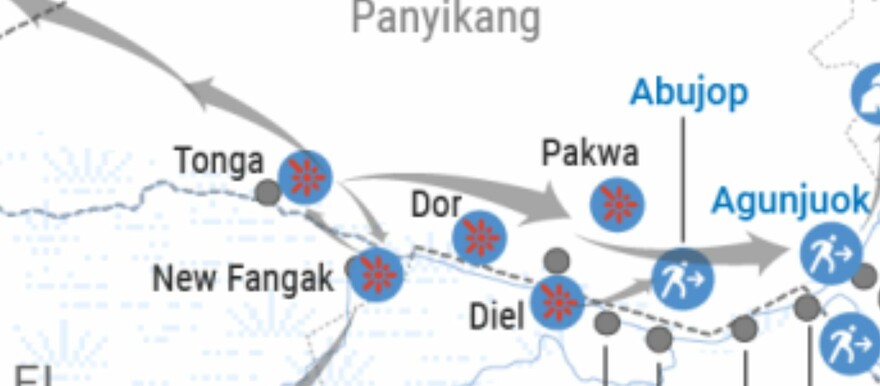The escalation in tensions and conflict in Tonga resulted in thousands of people displaced across several areas between Malakal and Tonga in Upper Nile State, a UN agency said.
There have been reports of heavy fighting between armed factions in Upper Nile State.
UN coordination agency OCHA in a report yesterday seen by Radio Tamazuj, said, as of 21 August 2022, rapid assessments estimate that 2,000 people fled from Tonga to Agunjuok; over 3,000 people fled to Abujop; a further 2,000 people arrived to Adidyang (25 km from Malakal /40 minutes by boat). In Malakal, 298 people arrived at the UN camp.
In Jonglei State, OCHA estimated that over 3,300 people from New Fangak have moved to Old Fangak, and in Unity State, 130 people arrived in Wunkur, Ruweng Administrative Area.
“In the Abyei Administrative Area, the United Nations Interim Security Force for Abyei (UNISFA) reported the arrival of 266 people displaced from Tonga to Abu Quassa,” the report said.
The UN agency pointed out that from 14 to 15 August, heavy fighting was reported between armed factions in Tonga town and neighbouring areas in Panyikang County, Upper Nile State. Fighting extended to Pakwa on 19 August.
“At least 2,000 people were reported displaced to Agunjuok, near Malakal town. At least 298 people arrived at the Malakal Protection of Civilians (PoC) site between 15 and 21 August, seeking safety. Additional people are reportedly moving towards Malakal town due to insecurity in Tonga and Pakwa,” the report said.
The situation is very dynamic. Some people are moving from location to location, and numbers are estimates based on reports and will change as the situation evolves.
Humanitarian access
In Fangak County, OCHA said, heavy taxation and illegal checkpoints were reported along river routes, impacting the delivery of supplies by both humanitarian and commercial boat owners.
“WFP and the Logistics Cluster have suspended their barge movements from Malakal, and beyond Adok and Kaldak, until the situation improves, and assurances are received from all armed actors along the river to respect humanitarian movement and commodities,” OCHA added.




